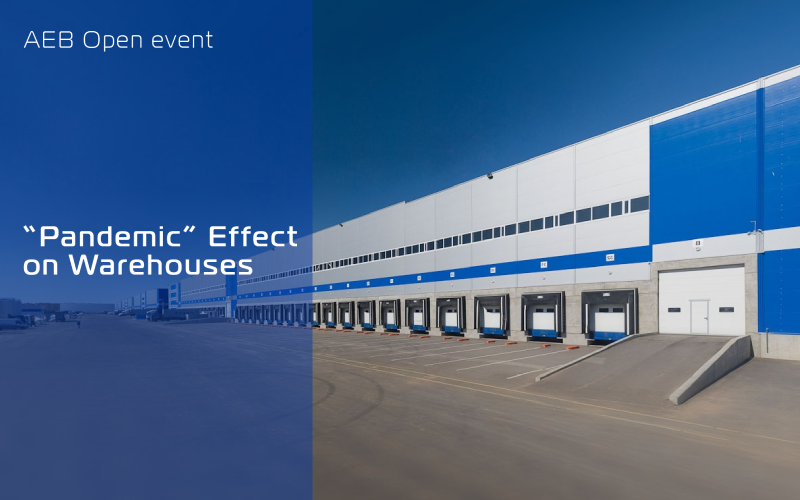News
“Pandemic” Effect on Warehouses
18.02.2021
On February 18, the AEB Real Estate Committee and the Industrial Construction Committee of the Association of Industrial Parks of Russia held a joint online event on the "pandemic" effect on warehouses.

Tatiana Kovalenko, Chairman of both Committees, Deputy General Director of Sendler & Company, was the moderator of the webinar.

The crisis, which started on the wave of the coronavirus, affected almost every segment of commercial real estate. Only warehouses were able to get away "dry". And even then the focus has shifted a lot: online trade and sales of essential goods are pulling up the format of warehouses within the city (incity warehouses/urban warehouses).
Konstantin Fomichenko, regional director, director of industrial and warehouse real estate at Knight Frank, emphasized a significant increase in transactions under the built-to-suit (BTS) scheme in 2020 and a large demand and much less supply on the Russian warehouse market. Retailers are doing well and remain deal leaders (Ozon, VseInstrumenty, VkusVill, X5Retail Group, FixPrice and others). It has been only two months of the new year, but as Konstantin pointed out, the market is developing rapidly, exposing the regions, introducing new investors with a clear segmentation of the market on the big box, light industrial, last mile warehouses, urban warehouses.

Raven Russia has been a leader in the warehousing sector in Russia for many years, investing in finished Class A warehouse complexes and their construction in major Russian cities with subsequent leasing to Russian and international tenants. Although the company's annual report will be published in a month, Vyacheslav Kholopov, director of marketing and leasing, shared with the participants of the webinar that, despite the "crisis", the cost of facilities is increasing significantly, which causes an increase in rates. Today warehouses are officially recognized in Russia as a strategic asset, not only for investment but also for making money.
During the harsh regime of restrictions, many common consumer and business models have changed. One obvious u-turn was the switch of communications to a remote mode. This caused an accelerated growth of online commerce.

One of the key advantages of online retail is high-quality offline logistics: modern warehouse facilities are essential, not only in Moscow, the main logistics hub of the country, but also in regions. As Anton Mizunov, development director of the group of companies "Storages of Russia" noted, it is time to develop new formats. There are warehouses of the last mile, darkstores; the adaptation of dry warehouses for fullfilment centers is in process, i.e. revision of electricity, ventilation, fire safety requirements. In addition, the format of big-boxes is popular, although the development of the market changes the classical idea of it.
At the same time, as Anton pointed out, there is a tendency in the market for customized solutions that are very much dependent on the internal processes of the warehouse itself and the investor's strategy.
The online event finalized with practical questions from the participants: on future and prospects of warehouses in the existing facilities, specifics of architecture and design, self-storage segment, speculative leasing in Eastern Moscow area, relevance of warehouse location to railways and so on.
Login
You are successfully registered



 Get it on
Get it on Download on the
Download on the